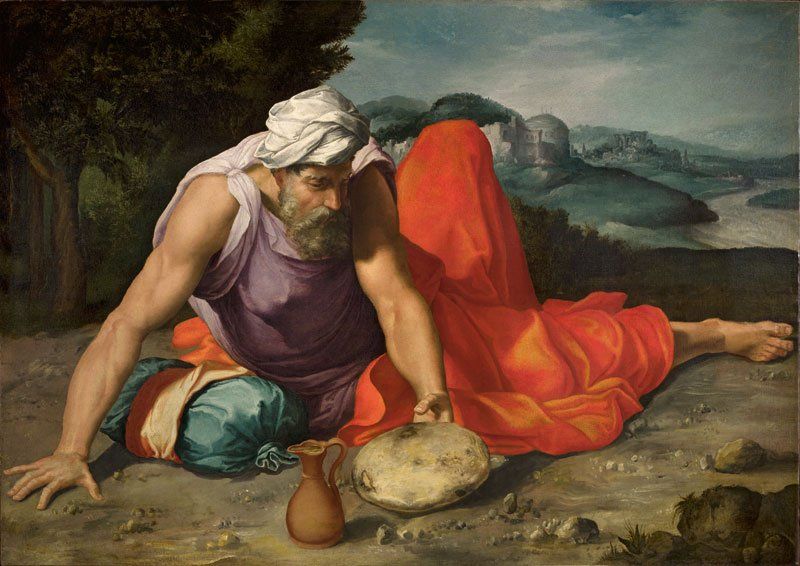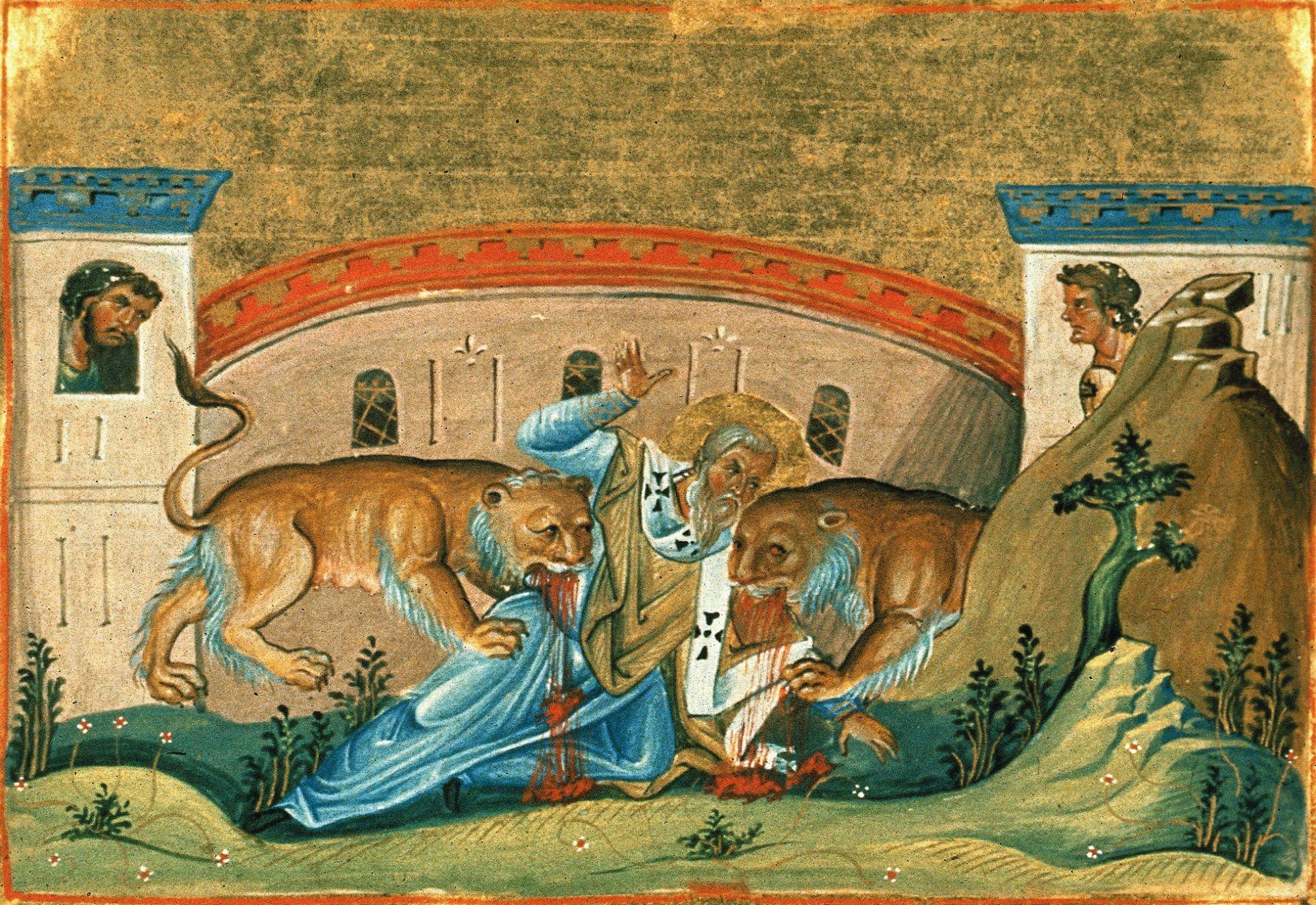"I have had enough" - Elijah in the Desert
Homily by Dom Brendan for Sunday, 8th August 2021
When Elijah cries “I have had enough. Take my life; I am not better than my ancestors” we might have some sympathy for an exhausted prophet, cast out into the wilderness, on the run from the forces of evil represented by the vengeful Queen Jezebel.
We too, for well over a year have been cast out into a wilderness, not through any wicked queen but an evil virus. While many found they have benefited from the various lockdowns - perhaps have found time for reading, prayer, reflection – it has left others ground down and worn out, cut off in in their isolation. Some have found themselves disorientated and out-of-sorts with their lack of connection with others in this covid wilderness.
And while Elijah could be pretty spectacular with the prophets of Baal, calling down fire from above, now when he sits down under the furze bush he is exactly as the rest of us can be at times: ground down, unable to cope and sapped of energy to face the present or the future. “I have had enough” he says. Jezebel had seemingly won.
But then an angel touched him, invited him to eat and drink.
The shock and sadness of closing churches during lockdown left many to fend for themselves spiritually for a certain time. Many found new ways of connecting online. It has been wonderful to have so many connecting with us through our website and online retreat. Some have found it easy; others have struggled.
But the angel says to us: “get up and eat.” Now is the time for us to cautiously rediscover communion as embodied human beings. To remember that not only do we need that physical encounter with Christ who gives us himself in the Eucharist as the Bread of Life, but to share communion with those physical others around me.
Perhaps it will be a slow process, but we need to learn to appreciate each other again, rejoice in each other again, because we are not made to be alone but to share this life together.
St Benedict proposes to us monks this vision of life together - life in communion - where the strong support the weak, the old live together with the young, where we try to share each-other’s burdens, where we seek to grow in holiness through our daily encounters. To live a free and blessed co-existence such as St Paul encourages us in his Letter to the Ephesians: “Never have grudges…or lose your temper, or raise your voice…Be friends with one another, kind and forgiving.” Don’t make the Holy Spirit sad!
At the beginning of the 2nd century another holy man was cast out into the wilderness by persecuting authorities, Ignatius of Antioch, the saint who had travelled from Antioch to Rome, to face martyrdom in a lions’ den, the Coliseum. One so convinced of the presence of Christ within him that he longed for the death he would meet there.
Ignatius was not afraid because he knew the secret of the Resurrection. As he travelled on his final pilgrim journey to meet his destiny in Rome he wrote a series of letters to Christian communities appealing for them to “stay united”, “to stay close to their bishops.” “Break the one and same bread,” he wrote to those same Ephesians as St Paul, for this is “the medicine of immortality, the antidote to prevent us from dying, but which causes us to live for ever in Christ Jesus.”
Ignatius was probably a disciple of John in Ephesus. Perhaps he had received his faith from the one who had laid his head on the Lord’s breast at the Last Supper. Perhaps he knew from the Beloved Disciple directly that the Bread we break is the living bread for our journey to heaven – the flesh of Jesus for the life of the world.
It wasn’t enough for Ignatius to receive the Living Bread of the Eucharist. He offered himself as the Wheat of Christ, prepared to be ground by the wild beasts to become the Pure Bread of Christ. Just as we learn to offer our very selves at the Eucharist, for Christ, for each other, for the life of the world.
Last year we landed in an unexpected desert. But now, again gathered around the altar of our churches, we taste something of eternal life, so that we can get up and walk. We receive this Bread so that now we may begin to live the Risen Life. We receive it so that like Ignatius we might become pure bread, life for others.
“Take my life”, cried Elijah in despair. “Take my life” cries Jesus in answer to us.
Take this Bread of Life and revive; take my body as the “antidote to death”; take this Manna as the seed of life within you. “The bread that I shall give is my flesh for the life of the world” John 6:51.











